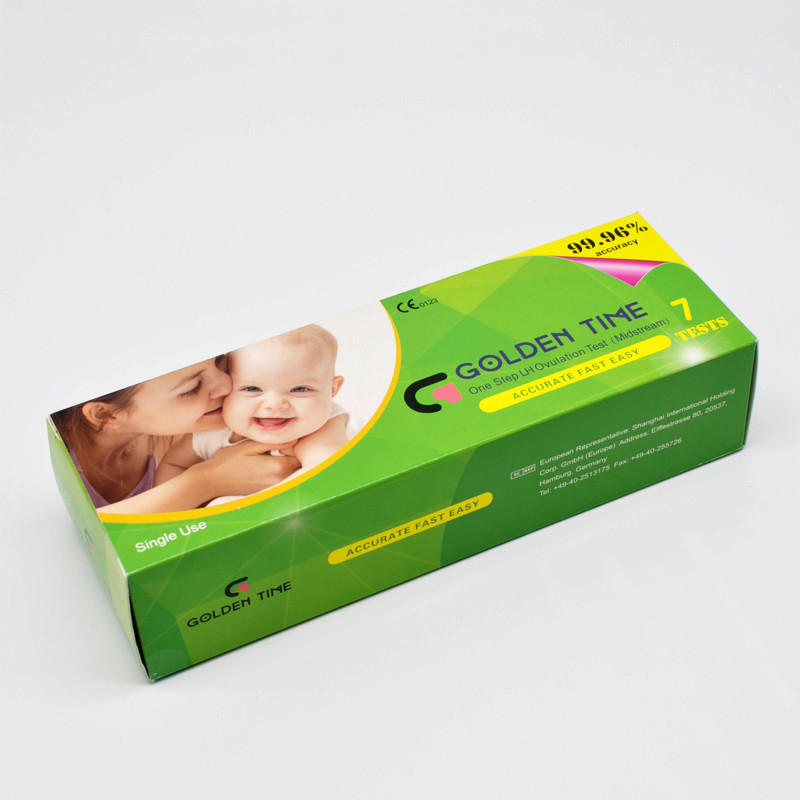2 月 . 15, 2025 05:38 Back to list
hcg pregnancy test cassette
Understanding pregnancy test sensitivity is crucial for individuals looking to make informed decisions about their reproductive health. Pregnancy test sensitivity refers to the ability of a test to correctly identify the presence of the pregnancy hormone, human chorionic gonadotropin (hCG), in urine or blood samples. This hormone is produced shortly after a fertilized egg attaches to the uterine lining, and its levels increase rapidly in the early stages of pregnancy.
In addition to sensitivity concerns, individuals should consider other factors like the specificity and accuracy of the test. Specificity refers to a test’s ability to identify non-pregnant individuals accurately, thus minimizing false positives. Accuracy encompasses both sensitivity and specificity, providing an overall measurement of the test's reliability. Choosing a pregnancy test can be overwhelming due to the variety of options available. It is beneficial to consult reviews and ratings, considering the experiences of others who have used the products. Additionally, healthcare professionals can offer recommendations based on the most current data and individual health considerations. The reliability of pregnancy tests is critical, impacting emotional and physical health decisions. Therefore, individuals should consider sensitive testing options endorsed by authoritative healthcare professionals. Trustworthy tests are often FDA-approved or recommended by well-regarded organizations. As awareness and education around pregnancy tests grow, users become more empowered in their reproductive health decisions. While pregnancy tests are invaluable tools, they should form part of a broader conversation involving comprehensive healthcare guidance. In a rapidly evolving healthcare landscape, advancements in pregnancy testing continue to enhance accuracy, sensitivity, and user-friendliness. Staying informed about these changes ensures that individuals can select the most appropriate test for their conditions. Ultimately, a blend of high-quality products, informed consumer choices, and professional healthcare advice lays the foundation for reliable pregnancy detection and management. This empowers individuals to make choices that best align with their personal health goals and circumstances.


In addition to sensitivity concerns, individuals should consider other factors like the specificity and accuracy of the test. Specificity refers to a test’s ability to identify non-pregnant individuals accurately, thus minimizing false positives. Accuracy encompasses both sensitivity and specificity, providing an overall measurement of the test's reliability. Choosing a pregnancy test can be overwhelming due to the variety of options available. It is beneficial to consult reviews and ratings, considering the experiences of others who have used the products. Additionally, healthcare professionals can offer recommendations based on the most current data and individual health considerations. The reliability of pregnancy tests is critical, impacting emotional and physical health decisions. Therefore, individuals should consider sensitive testing options endorsed by authoritative healthcare professionals. Trustworthy tests are often FDA-approved or recommended by well-regarded organizations. As awareness and education around pregnancy tests grow, users become more empowered in their reproductive health decisions. While pregnancy tests are invaluable tools, they should form part of a broader conversation involving comprehensive healthcare guidance. In a rapidly evolving healthcare landscape, advancements in pregnancy testing continue to enhance accuracy, sensitivity, and user-friendliness. Staying informed about these changes ensures that individuals can select the most appropriate test for their conditions. Ultimately, a blend of high-quality products, informed consumer choices, and professional healthcare advice lays the foundation for reliable pregnancy detection and management. This empowers individuals to make choices that best align with their personal health goals and circumstances.
Next:
Latest news
-
Dengue NS1 Rapid Diagnostic Test Kit
NewsMar.07,2025
-
Dengue NS1 Rapid Diagnostic Test Kit
NewsMar.07,2025
-
Dengue NS1 Rapid Diagnostic Test Kit
NewsMar.07,2025
-
Transferrin Rapid Test Cassette Tumor Marker TF Card
NewsMar.07,2025
-
Malaria Pf Pan Rapid Diagnostic Test Kit
NewsMar.07,2025
-
malaria pf / pan ag rapid test
NewsMar.07,2025

